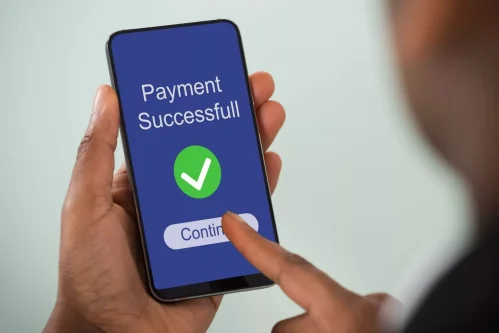Preferential Payment – Paying a friend before going bankrupt

Are you allowed to repay friend or family debt before you go bankrupt. What problems could you face if you make a preferential payment like this?
Included in this article:
- What is a preferential payment?
- Can you pay back friends or family debt before going bankrupt?
- What payments are not considered preferential?
Rather speak to person? Give us a call (0800 044 3194) or click here to complete the form below and we’ll call you
What is a preferential payment?
If you go bankrupt, you will be asked whether or not you have made any extra payments to some creditors but not others in the past 2 years. This seems a very innocent question at the end of a long application form. However it can lead to big problems.
Making extra payments or paying back one of your creditors in full over and above the others is called preferential payment. Under normal circumstances it is no problem at all. However, if you then go bankrupt it is not allowed. This is because you have protected one creditor in preference to the others. The rule applies whether you meant to treat the creditor preferentially or not.
If the Official Receiver (OR) becomes aware of the payment, under the bankruptcy rules they have to recover the funds you paid. They will contact whomever was paid and demand the money is returned to them.
Standard contractually agreed monthly repayments are not preferential. Continuing to maintain loan or credit card payments up to the date you go bankrupt is not a problem.
Can you pay back friends or family debt before going bankrupt?
No. Paying back money you owe to a friend or family member before you go bankrupt is definitely a preferential payment. It is still preferential even if you did not realise or plan it.
So for example, you can’t sell your car, use the funds to repay the debt you owe your Mother, Brother, Sister or friend and then go bankrupt. If you do and the OR finds out, they will demand the return of the funds. This will cause both you and your friend or family member a lot of stress.
If the individual you paid refuses to give back the money, or claim they no longer have it, the OR has the right to take legal action against them to enforce repayment. This could mean their credit rating become effected and worst case, even lead to bankruptcy proceedings against them.
If you refuse to give details of the person you have paid, the OR is likely to considered you as not co-operating with their investigation of your affairs. This could result in your discharge from bankruptcy being indefinitely suspended.
The OR can find out about preferential payments in a number of ways. If you sell something prior to going bankrupt they will ask what you did with the money. They may ask to see recent bank statements which might show payments.
What payments are not considered preferential?
Continuing to pay contracted amounts such as a monthly loan or credit card payment is fine. You can do this up to the month you go bankrupt without concern. In the same way, if you have been regularly repaying an agreed amount to a friend or family member on a monthly basis, continuing to do so is not a preferential payment.
This is because these payments are not regarded as extra or over and above the norm. It is only a problem if you make an extra payment which would give that creditor an advantage over others after you go bankrupt.
Using a balance transfer facility to pay off one credit card with another just before going bankrupt would probably be a preferential payment. However this is unlikely to concern you. Whether or not the official receiver asks the bank which has been paid to return the money will probably not worry you either way as it is not personal.
There are some types of debt that you can repay in full before going bankrupt. These include bringing rent arrears up to date or paying a debt to avoid the risk of physical violence. Such payments would not be treated as preferential payment.
Are you thinking about paying back a friend or family member before going bankrupt? Call us first for advice (0800 044 3194) or complete the form below.